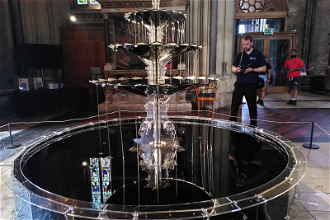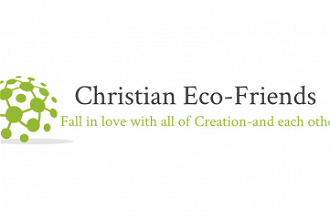Bristol: Polish church offers warm welcome to migrants
One of the first ports of call for new Polish migrants to Bristol is the Church of Our Lady of Ostrobrama. How fitting then, given all the recent media coverage, that the first Autumn event of Bristol Inter-Faith Group, should be to accept the invitation of the parish priest, Father Zygmunt Fraczek, to visit the church and to hear parishioner Dr Julia Verne speak about the social work of Polski Bristol.
The evening began with a visit around the beautifully restored church, a witness to the faith and devotion of a community which, since Poland's accession to the EU, has more than doubled in number and now includes a majority of young people.
In times of trouble Poles tend to look to the church for support. Father Zygmunt regularly receives 10 to 15 callers everyday, often in great distress, and although overwhelmed in the beginning, both he and Polski Bristol, formed to help him, are tackling the pastoral and social challenges involved in welcoming these new arrivals.
Many of the new arrivals are professional people who will accept manual work in order to improve their English, "Language is key to the well-being of all these migrants", explained Dr Julia, "We tell them 'no language, no job' and then we try to get their studies recognised so that they may get work that suits their qualifications. Indeed, language classes, which take place every weekday evening, were taking place during the BIFG meeting."
However, although employment prospects are good, some people have also had problems from unscrupulous employers or landlords, including physical threats, wages far below the minimum wage and extortionate amounts of money demanded for sub-standard accommodation.
As with the language classes, volunteers from the parish work closely with statutory and voluntary organisations around the city: the TUC, NHS, Bristol City Council, Citizens' Advice Bureau, City of Bristol College, and Avon and Somerset Police, are all organisations who have run advice sessions and workshops on a number of practical issues to help people settle in to the local community. And once they have settled, Polski Bristol's policy is to ask them to give something back to the community, helping others who have arrived after them. Arriving as a migrant in a new country is never easy and, for however long one plans to stay, it takes time to settle and feel at home.
The energy and determination of groups to like Father Zygmunt and his colleagues at Polski Bristol to ease the transition period and give people the practical help they need, show us what is possible when communities work together. They give real hope for the future, not only for the migrants themselves, but for all of us living and working in the city.
Sister Moira McDowall works for Clifton Diocese Justice and Peace Commission


















